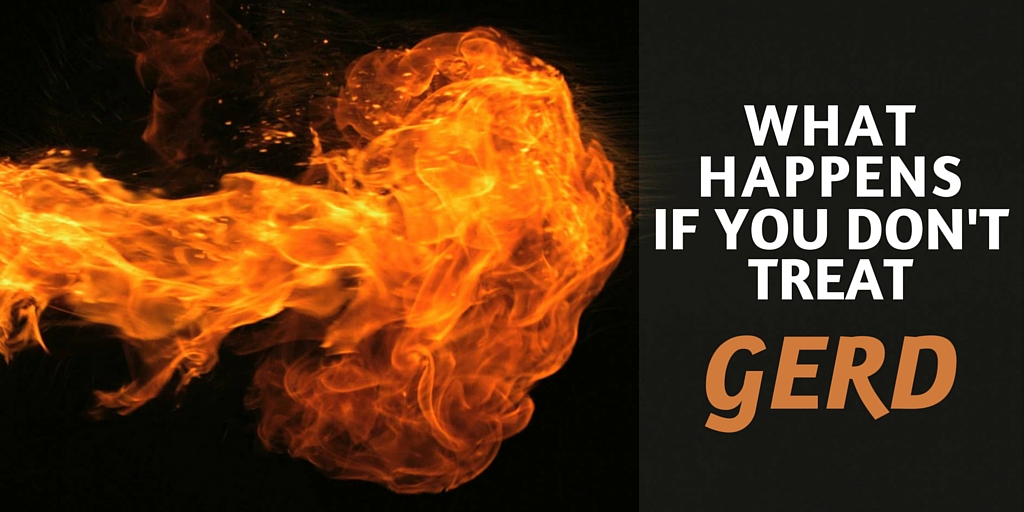Proton pump inhibitors, or PPIs, are a class of drug commonly used to treat acid-related conditions such as stomach ulcers and gastroesophageal reflux disease (GERD). They work by decreasing the amount of acid in the stomach by blocking a chemical system known as the “proton pump” in cells of the stomach lining that make stomach acid. Continue Reading Article >
3 Strange Symptoms of Reflux and How To Overcome Them
We all know the symptoms that come along acid reflux. There’s the bloating, heartburn, and stomach cramps that always follow your favorite meal, but there are also symptoms you could be experiencing that are less common among people suffering from reflux. However, people who suffer from acid reflux may come across these unique symptoms and there are most certainly ways to battle the symptoms when they arise. Here's the top three rare symptoms of reflux and how to combat them. Continue Reading Article >
What Happens If You Don't Treat GERD?
That burn in your throat after a hearty meal may seem like an uncomfortable annoyance easily solved by some Pepto-Bismol, but severe forms of heartburn, or GERD, can actually cause damage to your teeth, mouth, and esophagus when left untreated. GERD symptoms are pretty easy to identify because the discomfort of acidic stomach juices bubbling up your throat will quickly land you straight at your local gastroenterologist seeking GERD medications. However, it is important to closely follow your physician’s treatment plan so that a small problem does not grow into a more serious complication.
“Untreated frequent and refractory GERD can lead to esophageal ulceration, ulcerative esophagitis with risk of significant bleeding, esophageal strictures, Barrett’s esophagus or in rare cases even esophageal cancer,” says Dr. Faisal Bhinder, a leading gastroenterologist at Capital Digestive Care.
As further incentive to treat your GERD with the guidance of a physician, we've decided to list out the various effects of leaving GERD untreated. Here's 5 symptoms you may experience if you choose not to act quickly.
1. Esophageal ulcerations
Esophageal ulcerations are open sores at the bottom of the esophagus that often leads to discomfort behind the breastbone caused by the rapid erosion of the esophagus lining.
2. Ulcerative esophagitis
Ulcerative esophagitis with risk of bleeding is a rare complication that occurs in approximately eight percent of GERD sufferers when ulcers in the esophagus cause bloody vomiting.
3. Esophageal stricture
Esophageal stricture is when inflammation from stomach acid causes the esophagus to narrow. If untreated, this narrowing can block food and liquid from reaching the stomach.
4. Barret's esophagus
Barret’s esophagus is a more serious GERD complication when the esophagus lining is transformed into cells that resemble intestinal lining. This condition slightly increases the risk of developing cancer in the esophagus.
5. Esophageal cancer
Esophageal cancer is an uncommon but possible side effect of untreated GERD. Cancer can develop in two forms, squamous cell carcinoma and adenocarcinoma, which may effect all or part of the esophagus.
The effects of untreated GERD can manifest serious complications. GERD is a condition that is certainly uncomfortable, but when you visit a doctor it can easily be treated. Just remember to avoid any foods and other factors that may trigger your GERD and follow your physician’s treatment plan to avoid developing unnecessary complications.
By Meagan Bates
What Is GERD?
If you're a living, breathing human being then you've suffered from acid reflux at some point in your life, whether you knew it or not. Reflux is a normal part of life. In fact, the average American refluxes several times a day and doesn't even know that it's happening. However, when a person starts experiencing GERD symptoms, there is an issue. So, what is GERD? Continue reading here >

